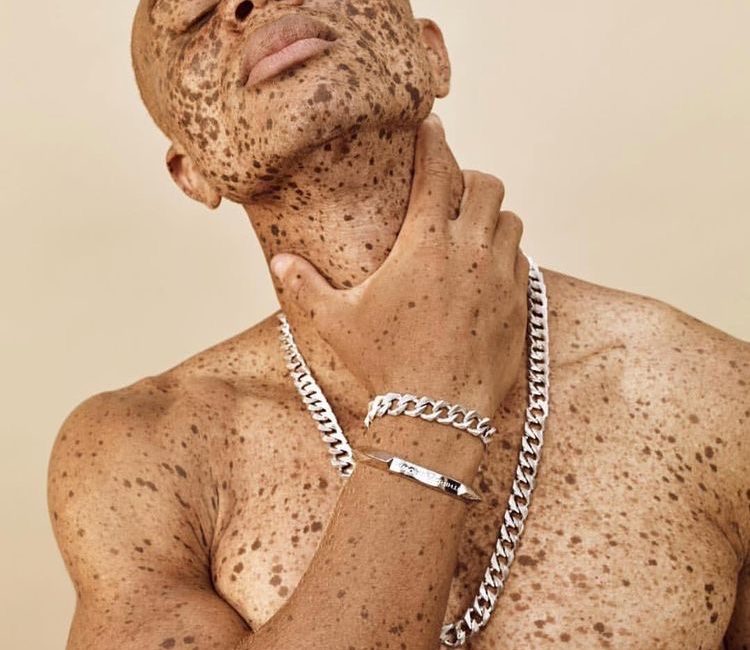We have previously discussed melanin and a proposed theory as to why humans exist in a range of beautiful colours, and the amazing protective nature of melanin itself. But like with any body part and process that are differences and individualities that makes each of us unique.
The process of melanin being produced and distributed to keratinocytes can result in a range of different types of pigment that we can see on the skin! Melanin production is triggered by UV exposure but also light, heat and inflammation, the identification and management of the cause is the most important part of treating pigmentation.
The melanocyte is a temperamental cell; once it’s been triggered, it remembers and continues the overproduction. Damage from the sun can accumulate over time and shows it head later in life, even if sun habits have changed – remember prevention is key!
But let’s breakdown some of the more common types of pigmentation we see regularly in the clinic;
Freckles are also known as ephelides. The are the most common and potentially one of the most notable forms of pigment. You may have noticed different people may have freckles that are different colours. Think red heads with orangey freckles and those with brown hair with defined brown freckles, this is from the 2 different types of melanin; Eumelanin and pheomelanin. Freckles are the result of a mutation in the MC1R gene, this means no matter how much lightening and brightening skin care and treatments you have, upon sun exposure your freckles will return. Being a gene mutation management will be continuous if you’re wanting to fade or remove them.
Melasma is sometimes called the ‘mask of pregnancy’ or ‘chloasma.’ Characterised by a butterfly or symmetrical pattern around the eyes and lips, melasma is often hormonally driven but can be caused by medications and of course is exacerbated by the sun. Interestingly, with melasma, often underlying the pigment there is a change in vascularity, just like the chicken and the egg – what came first, the vascularity or the pigment?
Melasma is one of the hardest types of pigmentation to treat as it is highly sensitive to light and heat, so many light based modalities must be approached with caution, pigment inhibiting skin care and sun avoidance will be your best friend.
Post inflammatory hyperpigmentation (PIH) is common yet does not affect all skin types, it’s far more common in darker fitzpatricks where the skin has an overproduction of melanin in response to inflammation and trauma.
How do you know if you’re prone to PIH? Think about a time you may have injured your skin or had a giant juicy pimple, within the healing of the spot did the skin turn brown or pink? If you said brown, that’s PIH! If you said pink, that normal healing tissue (post inflammatory erythema) and will resolve on its own, although sometimes slowly.
Post inflammatory pigmentation is often confused with scarring, some clients come in to us concerned with acne scarring, upon assessment we can see its a pigment changed not a collagen change that is the true definition of a scar. Sometimes PIH does resolve on its own but we can give it a helping hand with skin care and in clinic treatments.
Seeing there are many different types of excess melanin production, an absence of melanin can also occur called vitiligo. Vitiligo is an autoimmune condition where the body’s immune system mistakenly attacks and destroys the melanocytes resulting in patches of white skin where no melanin can be formed. Treatment is complicated but certainly not essential; vitiligo is a strikingly beautiful condition, Winney Harlow being the perfect example.
Skin comes in so many beautiful forms and pigmented skin conditions are not essential to treat, simply down to the preference of the individual.

